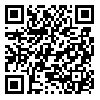دوره 11، شماره 1 - ( 10-1403 )
جلد 11 شماره 1 صفحات 74-67 |
برگشت به فهرست نسخه ها
Download citation:
BibTeX | RIS | EndNote | Medlars | ProCite | Reference Manager | RefWorks
Send citation to:



BibTeX | RIS | EndNote | Medlars | ProCite | Reference Manager | RefWorks
Send citation to:
Okgün Alcan A, Yavuz van Giersbergen M, Doğan O. Perceived Social Support and Social Appearance Anxiety After Bariatric Surgery. JCCNC 2025; 11 (1) :67-74
URL: http://jccnc.iums.ac.ir/article-1-636-fa.html
URL: http://jccnc.iums.ac.ir/article-1-636-fa.html
Perceived Social Support and Social Appearance Anxiety After Bariatric Surgery. نشریه مراقبت پرستاری مددجو محور. 1403; 11 (1) :67-74
چکیده: (1580 مشاهده)
Background: Patients undergoing bariatric surgery may need much more psychological and social support from their family and friends to maintain weight loss, recover, and cope with social appearance anxiety. This study determines the relationship between perceived social support (PSS) and social appearance anxiety (SAA) after bariatric surgery.
Methods: This descriptive, correlational study was conducted between October and December 2022 in Turkey through voluntary response sampling technique. A total of 121 bariatric surgery patients generated the sample. The multidimensional scale of perceived social support (MSPSS) and the social appearance anxiety scale (SAAS) were used for data collection. Descriptive statistics, Mann Whitney U and Kruskal Wallis tests were performed to analyze the data. Statistical Package for the social sciences for Windows version 21.0. was used for data analysis. A p value <0.05 was considered statistically significant.
Results: The average total score of perceived social support of the patients was 60.28±19.62 and the mean scores of family, friends, and significant others regarding the source of the support were 24.88±7.19, 19.70±7.06 and 18.69±8.69, respectively. The average total score of social appearance anxiety was 38.53±16.95. There was a statistically non-significant negative correlation between total scores of perceived social support and social appearance anxiety (ρ: -0.102 P: 0.27). The social appearance anxiety total score differed according to gender, preoperative, and postoperative body mass index (P<0.05).
Conclusion: The results showed that PSS does not affect SAA after bariatric surgery. Multicenter studies with more homogeneous samples in terms of time elapsed after bariatric surgery are recommended.
Methods: This descriptive, correlational study was conducted between October and December 2022 in Turkey through voluntary response sampling technique. A total of 121 bariatric surgery patients generated the sample. The multidimensional scale of perceived social support (MSPSS) and the social appearance anxiety scale (SAAS) were used for data collection. Descriptive statistics, Mann Whitney U and Kruskal Wallis tests were performed to analyze the data. Statistical Package for the social sciences for Windows version 21.0. was used for data analysis. A p value <0.05 was considered statistically significant.
Results: The average total score of perceived social support of the patients was 60.28±19.62 and the mean scores of family, friends, and significant others regarding the source of the support were 24.88±7.19, 19.70±7.06 and 18.69±8.69, respectively. The average total score of social appearance anxiety was 38.53±16.95. There was a statistically non-significant negative correlation between total scores of perceived social support and social appearance anxiety (ρ: -0.102 P: 0.27). The social appearance anxiety total score differed according to gender, preoperative, and postoperative body mass index (P<0.05).
Conclusion: The results showed that PSS does not affect SAA after bariatric surgery. Multicenter studies with more homogeneous samples in terms of time elapsed after bariatric surgery are recommended.
| بازنشر اطلاعات | |
 |
این مقاله تحت شرایط Creative Commons Attribution-NonCommercial 4.0 International License قابل بازنشر است. |





